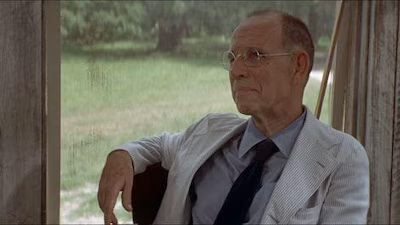Harriet Frank Jr.
About
Biography
Filmography
Family & Companions
Biography
Screenwriter of important American films from the late 50s, Harriet Frank Jr. collaborated with her husband, Irving Ravetch, beginning with "The Long Hot Summer" (1958), which also marked the first of many collaborations with director Martin Ritt and the first of several adaptations of the works of William Faulkner. Unlike her east coast bred husband, Frank was from Oregon. She attended UCLA at the same time as Ravetch, but they did not meet until both were in the MGM young writer's training program after World War II. While they soon married, they did not write together at this time. Instead, Frank collaborated with Stephen Longstreet for her first produced credit, the obscure "B" picture, "Steel River" at Warner Bros. in 1948. Also in 1948, Frank collaborated with Maurice Geraghty on "Whiplash," a minor film about an artist turned fighter. She worked without production success in the early 50s, then, in 1955, she joined with Ravetch to write a storyline which was bought by Columbia and adapted with another writer as "Ten Wanted Men" starring Randolph Scott. Ravetch and Frank began writing together in earnest and in 1958, they adapted three Faulkner stories as "The Long, Hot Summer," with Ritt directing. Ritt directed their next collaboration, "The Sound and the Fury" (1959), also based on a Faulkner novel. Their "Home From the Hill," a southern melodrama, was directed by Vincente Minnelli in 1959, and in 1960 Frank and her husband adapted William Inge's Pulitzer Prize winning drama "The Dark at the Top of the Stairs" for the screen. Firming their collaboration with Martin Ritt, Ravetch began producing with Ritt, with Ritt directing scripts by Frank and Ravetch. This was the team on "Hud" (1963), which starred Paul Newman as a moral sleaze in the modern west. It earned Frank and Ravetch their first Academy Award nomination. Newman again starred under Ritt's direction in "Hombre" (1967) playing a young man raised by Native Americans who must acclimate to the "white" world. Without Ritt, but with a novel by Faulkner, Frank and Ravetch adapted "The Reivers" for the big screen in 1969, a well-received Steve McQueen vehicle. But, it was back with Ritt in 1974 for "Conrack," which was based on Pat Conroy's autobiographical writings of his experiences teaching African American children shut off on an island off the coast of South Carolina. Ritt, Ravetch and Frank were together again with the acclaimed "Norma Rae," which, like "Conrack" was set in the south and dealt with socio-political issues. In this case, Sally Field was a poor mill worker who finds her inner resources through working to unionize the mill. The 1979 film earned Frank and Ravetch their second Academy Award nomination. Ritt directed Field in "Murphy's Romance" in 1985, a different kind of script by Frank and Ravetch in that it was an easy going comedy about the relationship with Field and James Garner. But Frank and Ravetch got serious again in 1990, with Ritt directing "Stanley and Iris," with Jane Fonda teaching Robert De Niro to read.
Filmography
Writer (Feature Film)
Producer (Feature Film)
Writer (Short)
Writer (TV Mini-Series)
Life Events
1948
Co-wrote (with Stephen Longstreet) "Steel River" for Warner Bros.
1955
Began writing with husband, Irving Ravetch
1958
Had first produced collaboration with husband Irving Ravetch, "The Long Hot Summer" (MGM)
1963
Nominated for Academy Award for co-writing (with Ravetch) "Hud"
1979
Nominated for Academy Award for co-writing (with Ravetch) "Norma Rae"
1985
Adapted "Murphy's Romance" for the screen
1990
Co-wrote (with Ravetch) "Stanely and Iris"
Videos
Movie Clip












Trailer







Companions












